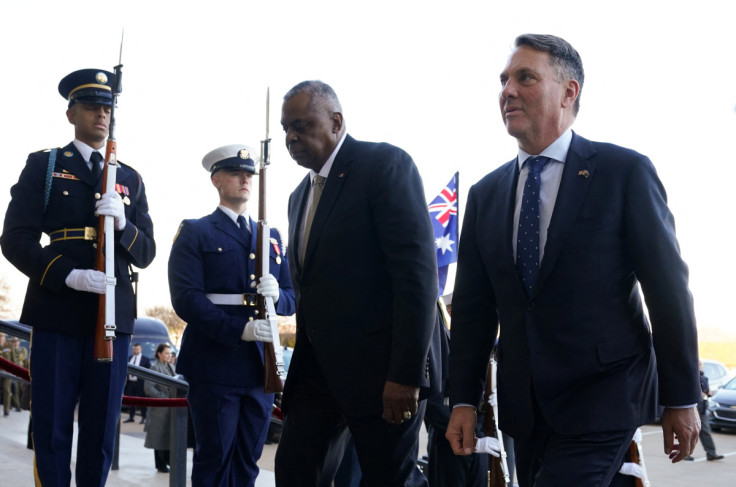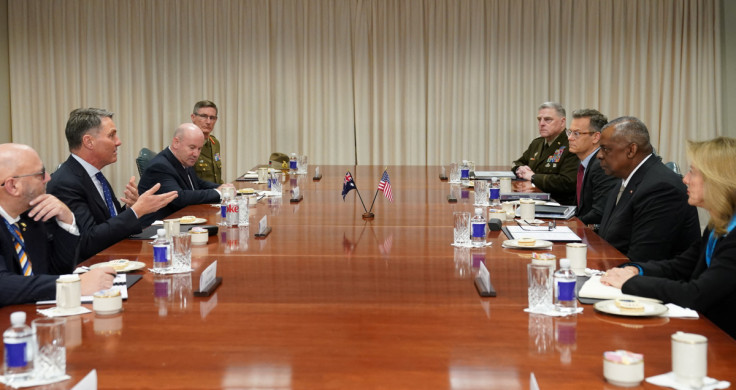U.S., Australia Vow To Counter China's 'Destabilizing Military Activities'

Australia and United States are determined to "counter destabilizing military activities by the People's Republic of China", their defense ministers said after a meeting at the Pentagon at the start of annual talks between the allies.
U.S. Defense Secretary Lloyd Austin met with Australia's Defence Minister Richard Marles in Washington on Monday as part of the annual AUSMIN talks that on Tuesday included the two nations' foreign ministers.
Britain's defence minister, Ben Wallace, will also attend the first in-person meeting of AUKUS ministers on Wednesday in Washington. The defence technology group of Australia, United States and Britain was formed to deliver nuclear-powered submarine technology to Australia.
The AUKUS meeting comes at a critical time for the partners, which are due to decide in March whether the submarine will be British or American, and set a road map for an Australian fleet.
Australia has said it needs the long range and stealth capability of nuclear-powered submarines, which would carry conventional weapons.
A U.S. Department of Defense report on China last week said Beijing was making a diplomatic push to criticise and "subvert" AUKUS. "PRC officials have inaccurately framed AUKUS as an act of nuclear proliferation," it said.
Canberra has said the Non-Proliferation Treaty (NPT) that Australia is party to does not prohibit nuclear propulsion.
A statement released after the Pentagon meeting said Australia and the United States would deepen defense cooperation, including technology cooperation.
Charles Edel, head of the Australia program at Washington's Center for Strategic and International Studies, said he expected Tuesday's discussions to build on plans for expanded military cooperation announced last year just after the AUKUS deal.
"I'd expect them to build on the Enhanced Force Initiatives announced in 2021 to support the rotation of more regular and more robust air assets in northern Australia," he said.
The talks would also likely cover "strengthened U.S. land presence, greater training activities with other key partners such as the Japanese, and the build-out of the necessary supporting logistics, infrastructure, and fuel and weapons storage facilities," he said.
Washington sees Canberra as a vital partner in its efforts to push back against China in the Indo-Pacific and analysts say Australia could have a crucial logistical role to play in the defense of Taiwan against any move by Beijing to reclaim the strategic, self-administered island.
The White House coordinator for the region Kurt Campbell said earlier this year that "moving forward, everything we do of consequence in the Indo-Pacific, we will do with Australia."
China is Australia's largest trading partner and the top market for exported iron ore, but Canberra has grown concerned about Beijing's military ambitions in the South Pacific after it struck a security pact with the Solomon Islands this year.
A meeting between Australia's Prime Minister Anthony Albanese and Chinese President Xi Jinping last month at the G20 was a step towards normalising ties but would not bring a shift in Canberra's defense policy, Australian diplomats said.

© Copyright Thomson Reuters 2024. All rights reserved.





















